Pontianak, full name Kota Pontianak, is the capital of West Kalimantan, in the Indonesian part of Borneo Island.
Nicknamed “Equatorial City” (Kota Khatulistiwa), it is the only city in the world crossed by the Equator line, at 109 degrees of longitude and 0 degrees of latitude. It was also my gateway to the island of Borneo.
I had no expectations for this city. Travel guides invested only a few lines into the city, and top-10 lists of things to do were top-2 or top-3 lists at best instead. What does that mean? It means Pontianak is a just a city. And “just a city” means that there is not much (need for) tourist infrastructure, meaning that whatever is there, that’s how a group of people live.
Certainly, there are a few hotels, and travelers going to the Danau National Park might find tour deals at these hotels. However interesting this kind of place seems to be is up to the traveler. This is how half a million people live, this is their definition of life, and that makes it beautiful for me already. While Pontianak should not be a destination (every traveler’s destination here should be the jungles of Borneo!), why not spend a day around on your way?
Long story short, instead of taking the morning intercity bus, I postponed that until 9PM, took my backpack on and marched into town. In these kind of places, what I do is find any landmark and start walking towards it, almost never in a straight line.
I place no expectations on that landmark whatsoever, and I might not even reach it. In Pontianak, that landmark is, of course, the Equator line monument/museum.
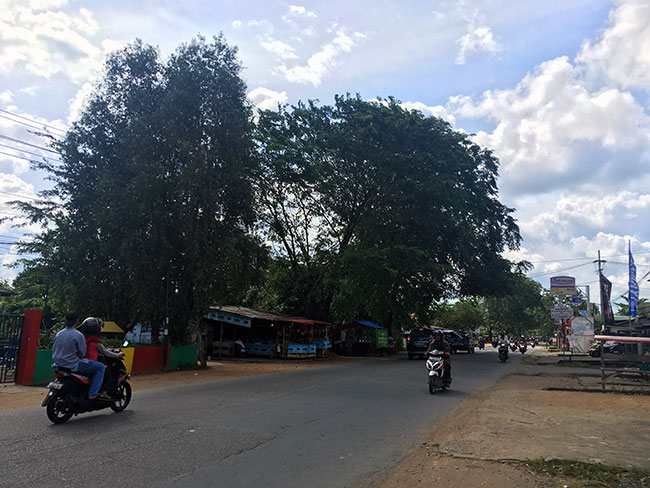
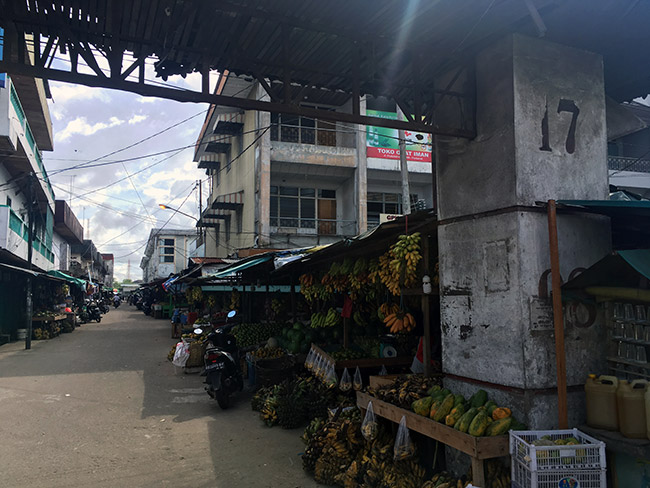
Pontianak is divided into many parts by a handful of rivers. The biggest one, Sungai Kapuas, has ferries (2,500 IDR) to cross to the other side.
There also ferries that take passengers east, deep into the jungles of central-west Kalimantan. The Equator monument is in the north-west part of the city, and my hostel in the southern suburbs. So I walked north.
The whole southern part of the city (south of the main Jalan Ahmad Yani road) is a mix of modern and rudimentary-looking businesses. The streets are built along creeks, so the streams follow you along every road you take.
One can’t help but notice the surprising amount of people who just hang around by the roadside, doing apparently nothing, only moving their eyes to the events around them, absorbing them with mild indifference.
Since I was the only foreigner, I did receive a lot of attention: kids, women and men want to say Hi and practice a bit of English. “Where are you come from?” “Barcelona”, and of course, like always, “Oh! Messi, Messi!” Everywhere I looked I was welcomed with big smiles and joyful eyes.
As I walked next to the road, motorbikes would honk at me, stop to offer me a ride or just look at my face for a couple of seconds and then continue driving. Cars and big trucks alike would also honk and wave their hands out of the windows, then looking at the rearview mirror to check that I did indeed wave back.
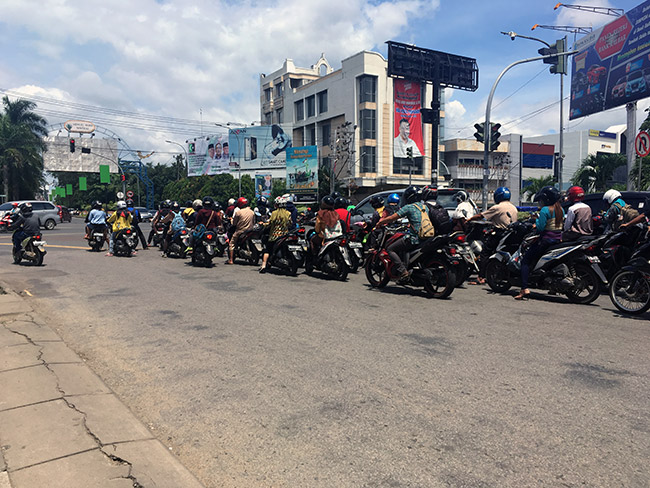
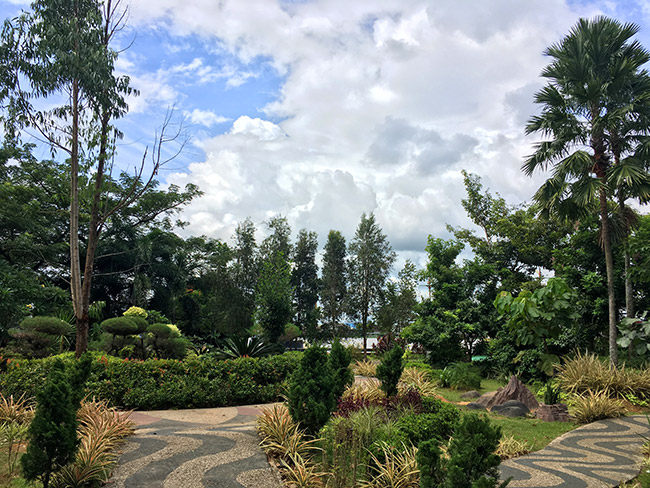
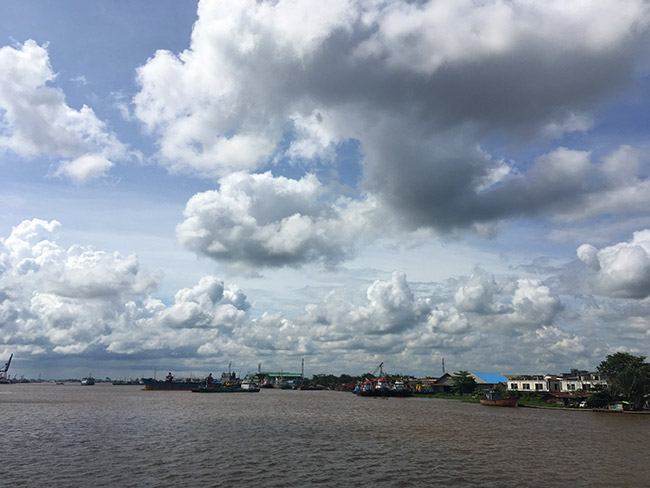
As I reached the main road and therefore the center of the city, it all became a dusty nightmare.
The big road is extremely crowded, with motorbikes in control and cars trying to move around. The spectrum of roadside businesses is reduced to garages, shops of motor parts and basaars.
The air was greyer and the smells unpleasant, so I hurried to the small port by the Alun-Alun Kota Park and took the ferry to the other side of the river. North of the river, the air was breathable again.
Albeit the main road on that side would lead me all the way to the Equator monument, I led myself into the smaller paths, zig-zagging and going forth and back between them. This suburb is entirely residential, with only a few street stands to load up on snacks.
The creeks are wider, and the houses seem to be half-drown into the water. The kids, of course, are happily playing around, they have one hell of a playground after all, with pools everywhere and roads free of traffic to practice their bicycle tricks.
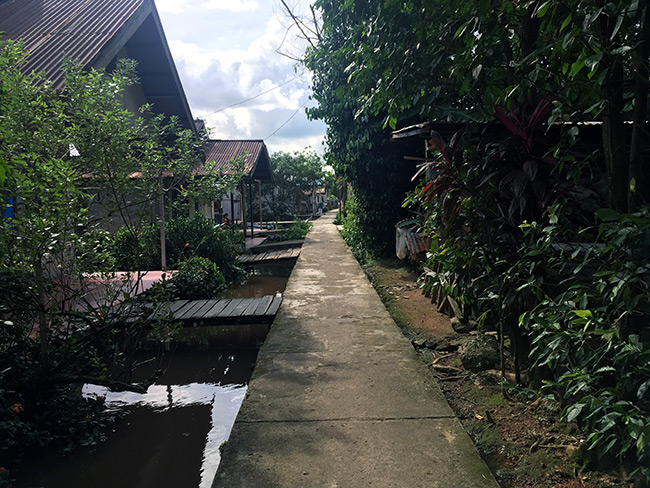
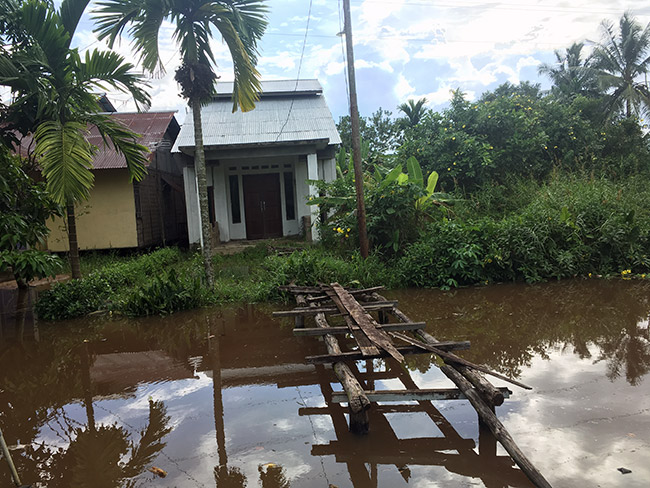
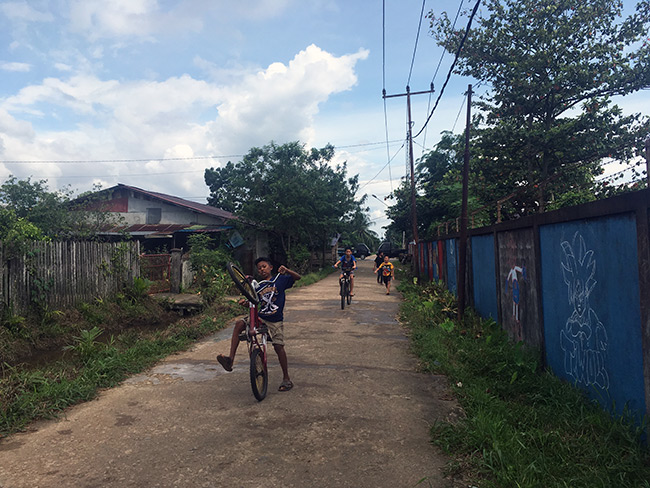
After fighting shyness for a few minutes, some of the kids wanted to know my name. I gave it away in exchange of theirs, and then they all ran in different directions telling the whole neighborhood that my name was Ferran.
I was then welcomed with a “Hello, Ferran!” by kids and adults everywhere I roamed till I made out of the suburb and for the main road.
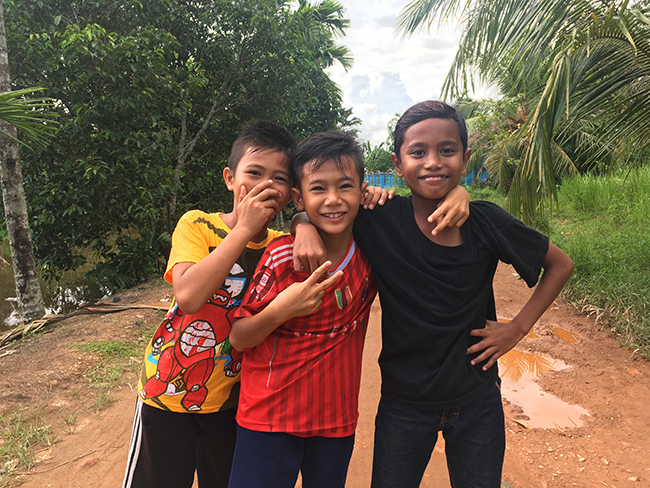
There is not much to the Equator monument park, but I loved it. There is a sort of obelisk building inside which a free-entry museum teaches all about the coordinate system, the origin of the Sun, our the rest of the planets and a bunch of other space science phenomena.
Inside the museum, right where the Equator line is, some visitors engaged in a curious game that consisted in placing four eggs vertically in a row so that they would not move and fall. Inside and outside the obelisk, one can of course place one leg on the Northern Hemisphere, and the other on the Southern Hemisphere.
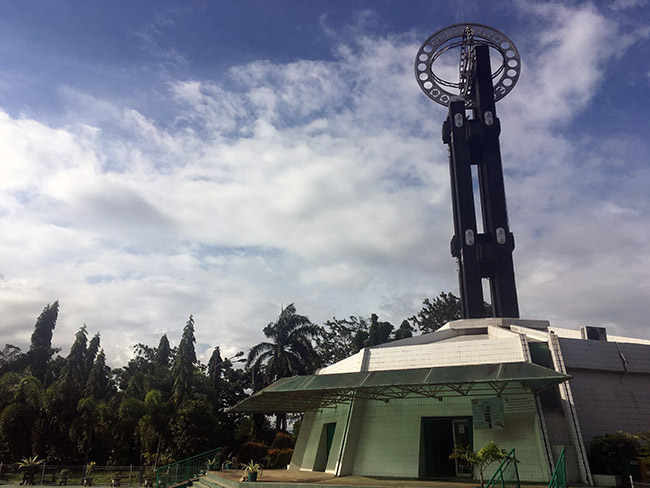
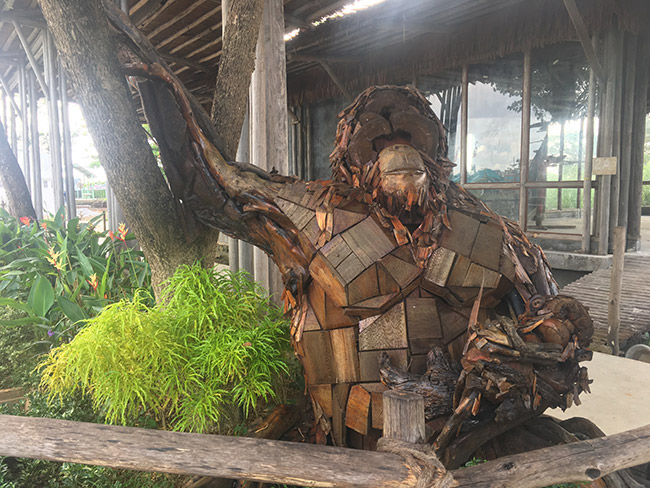
It got late and dark pretty quick, and I returned to the main road planning to find some wi-fi cafe and get myself a ride.
I tried Uber, Grab and Go-Jek, popular options around there, but my lack of Indonesian and the poor connection made it impossible for any one to come pick me up.
In the end, as usually happens in this world, people offered to help me out, and the husband of the lady that ran the coffee shop gave me a half hour ride on his bike to the Ambawang Terminal, where the international buses start their journeys to eastern Kalimantan, Malaysia and Brunei. He did not speak any English, so I was a bit embarrassed and frustrated that our conversation was just not possible at all.
I could only spout a bunch of “terima kasih” (thank you) when he dropped me off. After all, this is a chain of favours that transcends countries and cultures, and millions of us are part of it. He nodded in acknowledgement, and vanished into the night, and then I boarded the bus that would take me to Malaysia in no less than twelve hours.
Unlike long-distance buses in the West, these buses (in most of Southeast Asia) are really comfortable, with a lot of legroom for every traveller and reclinable seats in a configuration of 2+1 seats per row only. They are very affordable too (Pontianak-Kuching is 230,000 IDR).
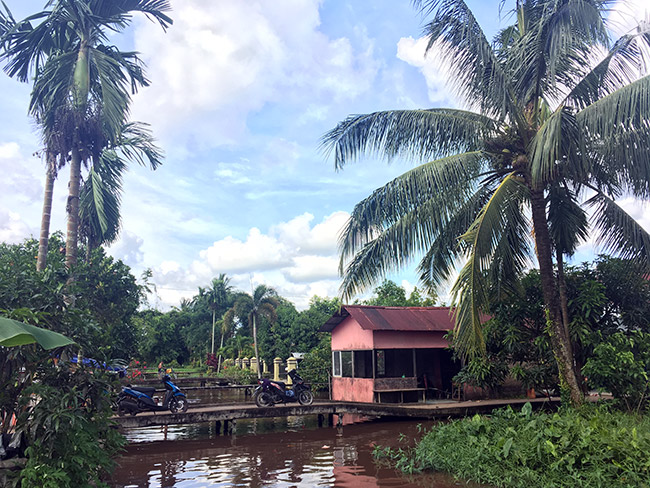
One Reply to “Pontianak, a city crossed by the Equator”